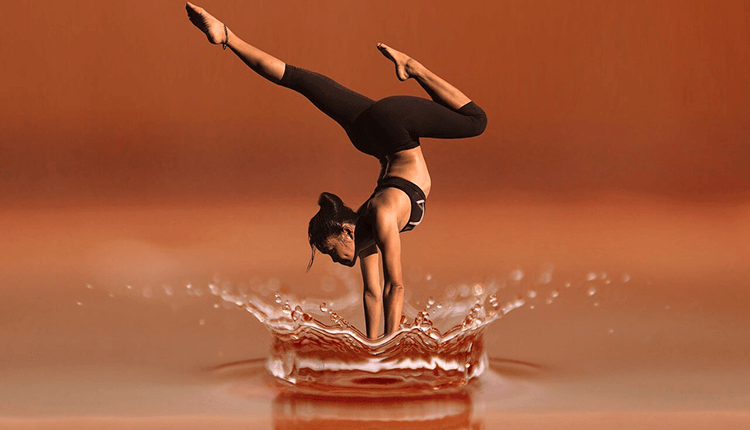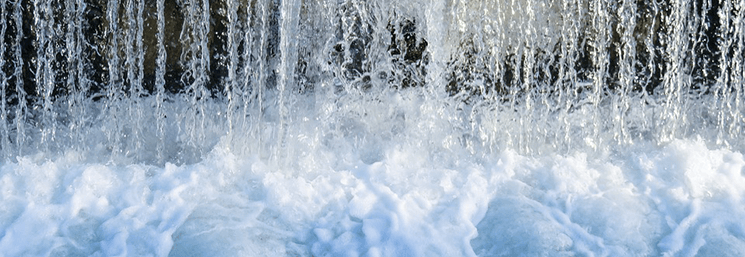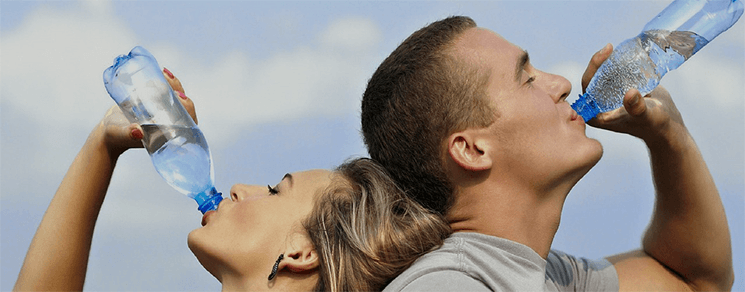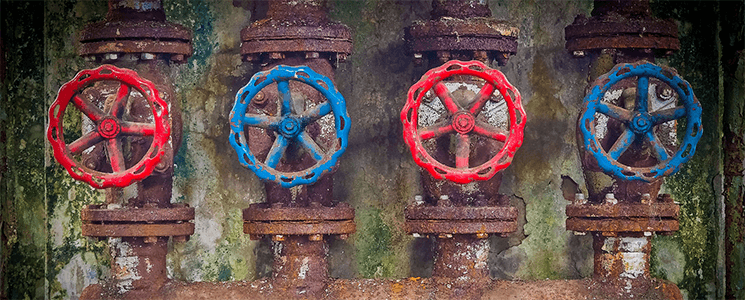Welches Wasser ist gesund? – Vermeide diese Fehler!

Inhaltsverzeichnis
- 1 Warum Wasser nicht gleich Wasser ist!
- 2 Welche Trinkwasserarten gibt es überhaupt?
- 3 Which water is healthy?
- 4 Which water or drink is suitable after your workout?
- 5 From which you should drink your healthy water: glass bottle vs plastic bottle
- 6 Is tap water healthy? – You can argue about that
- 7 Conclusion
Warum Wasser nicht gleich Wasser ist!
Sicherlich ist Dir beim Einkaufen schon einmal aufgefallen, dass es gefühlt 100 verschiedene Wassersorten gibt. Das fängt bei Plastik- und Glasflaschen an und geht hin bis zu „natriumarmen“, „calciumreichen“ und „kohlensäurehaltigen“ Sorten.
Du musst verstehen, es gibt unzählige Wasserarten. Das hat zum einen etwas mit der Qualität des Wassers zu tun, zum anderen mit dem Anwendungsbereich.
Die Wassersorten unterscheiden sich vor allem in der Zusammensetzung der Inhaltsstoffe
Wenn du diesen Artikel ließt, wirst Du sogar auf diverse Nahrungsergänzungen verzichten können und langfristig Geld sparen!
Welche Trinkwasserarten gibt es überhaupt?
Hier hast Du eine kleine Übersicht, welche verschiedenen „Wasserarten“ es überhaupt gibt.
Keine Angst, danach wird es endlich spannender und praktischer!
- Natürliches Mineralwasser: Entstammt einer oder mehrerer anerkannter, natürlicher Quellen oder Bohrlöcher und muss bestimmte Hygieneeigenschaften erfüllen. Die Abfüllung erfolgt direkt am Ort der Quelle. Und wie der Name bereits vermuten lässt, ist es reich an Mineralien.
- Leitungs-/ Trinkwasser: Entstammt aus dem Grund- und Oberflächenwasser. Es wird z. B. aus Talsperren, Flüssen und Seen gewonnen. Leitungswasser unterliegt in Deutschland extrem strengen Auflagen und wird von Versorgern zusätzlich aufbereitet. Es gilt als schadstoffarm, unterliegt Grenzwerten und hat wenig Keime.
- Tafelwasser: Bei Tafelwasser handelt es sich um „nachgemachtes Mineralwasser“. Eine künstliche Wassermischung aus Leitungs-, Salz- und Mineralwasser. Ein industriell hergestelltes Wasser also. Für die Herstellung ist per Gesetz keine anerkannte Quelle pflicht.
- Quellwasser: Entstammt künstlich erschlossenen Quellen. Quellwasser muss ebenfalls den Trinkwasseranforderungen gerecht werden. Anders als Mineralwasser benötigt es aber keine amtliche Anerkennung. Es muss auch keinen gesundheitlich positiven Effekt auslösen, um diesen Namen tragen zu dürfen.

Which water is healthy?
Surely you’ve already asked yourself the question in the supermarket: “ Which water should I buy for myself ?“ That would be no surprise considering the large selection of brands.
Before you can make this decision, however, make sense, you must first clear a few basic things.
Are you an athlete ? Maybe even competitive athletes or endurance athletes ? That makes a big difference.
In our Water Guide article , I’ve already explained to you why drinking water is so important to you and what you need to look out for!
In this article we want to find together the best water or sports drink for you. You will then understand which water is most suitable for which application.
Ingredients that make up healthy water
Special minerals ( electrolytes ) in your water make sure that your water can be absorbed by you correctly.
These minerals are for example:
- sodium
- magnesium
- calcium
- potassium
However, for example, if you do sports or sweat for other reasons, in addition to water, you also lose these minerals.
Somehow these minerals have to be added to your body again. This happens in addition to food intake , especially about drinking healthy water.
In our water guide, I explained that you can drink too much water, so of course you can also absorb too much of these minerals.
Nevertheless, you should take care. In Germany, we already consume 600% more saline than recommended. [Note] verbraucherzentrale.de/wissen/lebensmittel/gesund-ernaehren/salzkonsum-in-deutschland-11379 [/ note]
Saline contains about 40% sodium , which many of us consume quite a lot of it!
However, most people are not real athletes;)
I generally recommend you always water (especially quiet) to prefer other drinks.
For the following reason : The amount of sodium in a drink determines how quickly or slowly the drunk liquid gets into your blood. (This is also the principle behind “ Isotonic Drinks „.
Which water in everyday life is best for you
In everyday life, your goal should be a constant and fast fluid intake. For this are „hypotonic drinks“. (Less sodium in the drink, than in your blood).
So, for example, a water with relatively low sodium levels would be best suited.
In everyday life, you have no extreme sweat losses , there is no special sodium intake required for you. So you can refer here as I said on the classic low sodium water types.
In addition, you already take on the salt in your diet quite a lot of sodium (especially if you still relatively unconsciously eat that would be about 2-3g of sodium per day).
Which water or drink is suitable during the workout?
60 – 90 minutes strength training: Depending on the intensity, it may make sense to think about an additional sodium intake for this duration of exercise.
It definitely creates a loss of sweat. For you, a healthy and rich in sodium mineral water would be ideal. Best low in carbon.

“ Natriumreich“ means 400 – 1100 mg sodium per liter 1 Dr Loeffelholz C .: Nutritional Strategies in Strength Training & Bodybuilding Optimum Muscle Building, Accelerated Fat Reduction, Increased Strength 7. Edition Novagenics-Verlag (2014) [/ note]
I suspect 60 – 90 minutes is the most relevant load duration for you. It is sufficient if the sodium values of your water are in the lower range of this data.
Water types with a lot of sodium :
- Heppinger Extra (651 mg sodium)
- Apollinaris (747 mg sodium)
- Überkinger source (1180 mg sodium)
Over 90 minutes of strength training: From this exercise period your “ electrolyte consumption“ is significantly increased 2 ncbi.nlm.nih.gov/pmc/articles/PMC5371639 / [/ note]
Of course, a certain intensity is always required.
For example, if you’re STILL one of those people who take 2/3 of the break or are on the phone , this would not be relevant to you.
However, if you are already exercising intensively and for a long time, then your hydration should be provided during training by a healthy mineral water in the upper area of my indication.
endurance training: If you are an endurance athlete, it may be necessary to add a few carbohydrates to your water. The ideal amount of carbohydrates for your healthy sports water are a maximum of 3-8% , everything about it would have the opposite effects …
That is a very individual question. During a diet it might not be so smart for you to have extra carbohydrates in your water.
Which water or drink is suitable after your workout?
A very good drink after training are fruit juice spritzers . Did you always think fruit juice spritzers would be bad?
The health benefits of a fruit even persist in these fruit juices or concentrates for you. (Except for very few exceptions!) [Note] ncbi.nlm.nih.gov/pmc/articles/PMC4555108 / [/ note]
After a workout, in addition to the carbohydrates from these drinks / juice spritzers, also containing magnesium and calcium makes perfect sense for you!
With Schorlen are fruit juice mixtures in the ratio of 3: 1 , to 1: 1 ( fruit juice: water ) meant. Look at the label, “ from concentrate “ must be on it!
Of course, you can stay afloat after sport, but why not a little change?
Please use these spritzers but really only after your training . Not that you only drink spritzers and fruit juices because of the delicious taste!
Especially as a beginner, I recommend you to drink pure healthy water or tea and not to absorb unnecessary calories, (unless you want to increase targeted, but that’s another topic.)
From which you should drink your healthy water: glass bottle vs plastic bottle
Plastic bottles are a science in their own right. Here, we mainly focus on your health and performance and hide ecological and other things.
Of course, you should always prefer glass bottles, but most glass bottles are rather less suitable for training.
The least sports drinking surfaces are made of glass, but they exist!
The problem of a plastic bottle
You’ve probably heard of BPA ( Bispenol A )? In principle, every unbreakable plastic bottle consists of it, even various cans and other beverage packaging.
I do not want to deepen the whole thing unnecessarily, but BPA has countless extreme health disadvantages! 3 ncbi.nlm.nih.gov/pubmed/29481862 [/ note] You should avoid BPA at least with your sports hydration bottle.
Are BPA-free bottles healthy and the solution to the problem?
BPA Free or BPA Free has been on everyone’s lips for several years. This is, as I said, definitely one of the substances that you do not want to have in your body!
Many people now buy these supposedly healthy “ trend bottles „. But is it really that healthy? At any rate, BPA is currently being replaced by BPS (bisphenol S).

Not a very good idea 4 academic.oup.com/endo/article/157/2/636/2422708 [/ note] …
It usually makes little sense if you replace pollutants with other pollutants. That can not be that healthy, right? It’s like jumping from a hot frying pan into a fire.
So please do not fall for this marketing nonsense . Maybe the sellers of these bottles just do not know it better. But what interests you and your health?
If possible, drink your healthy water from healthy „containers“. For example, glass bottles , glasses or stainless steel containers !
Is tap water healthy? – You can argue about that
We all know that drinking water quality in Germany is generally very good. [Note] bmub.bund.de/en/topics/water-waste-soil/water-management/drinking-water / [/ note]
Nevertheless, it would be grossly negligent for me to claim that tap water is absolutely healthy or harmless.
Each of us drinks tap water from time to time. If not, then we use it for cooking.
Even if all limits are met by the water suppliers, who knows what exactly comes from your faucet?

It also depends on you as a person. Some people are just more sensitive and react more to other germs , fluoride , bacteria and Co. than others.
These are always only reference values. Ultimately, the dose makes the poison. I definitely do not advise you (especially if you live in a very old house) to drink only tap water.
Also, do not use extreme amounts of it for your fluid intake.
Now the question is: Purchased “ mineral water “ from the plastic bottle (are we back to the BPA theme), is that better?
We can now discuss this endlessly, I would not recommend to you at the moment, to take several liters in the form of tap water per day to you!
A water filter can help
There are now countless water filter systems to treat tap water.
Some systems make absolutely no sense, others really offer you a huge added value.
A very useful option would be a “ reverse osmosis filter „. These types of filters can also remove fluoride from your drinking water and are more effective than “ carbon filters „.
Conclusion
As you can see on the topic: “ Which water is healthy ?“ Many roads lead to Rome.
You should not go crazy with it, but drinking water is one of our most basic things we have to do!
Various pollutants (nitrite, nitrate …) in drinking or tap water can definitely cause health problems 5 ncbi.nlm.nih.gov/pmc/articles/PMC5369112 / [/ note] – especially fluoride and especially in children . 6 sciencedirect.com/science/article/pii/S0892036214001809 [/ note]
exploresurvey.com/feedback-comcast
If you have unfounded, health problems , it would certainly not be wrong for you to dive deeper into this pollutant issue!
I n relation to sports and training : Use some of my tips. This is not a blah, but really makes sense and works. If you mean something more serious, then there is no way around anyway!
- Hast du schon mal überteuerte Sportgetränke ausprobiert, was ist Deine Meinung dazu?
- Was hast Du bisher über BPA-freie Flaschen gedacht? Komfortabel sind sie zwar, aber…
- Bist Du von unserem Leitungswasser überzeugt oder hast Du Zweifel?
Am Ende der Seite, kannst Du mir einen Kommentar hinterlassen, ich werde auch darauf antworten – versprochen!
